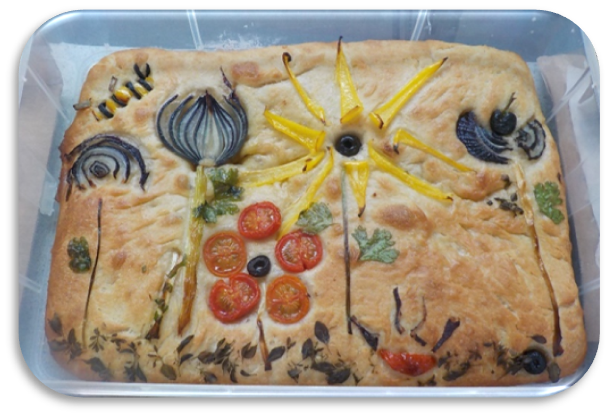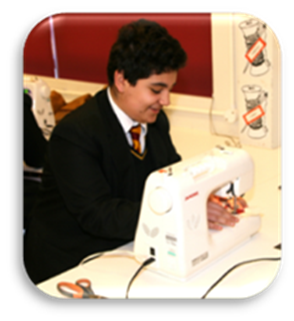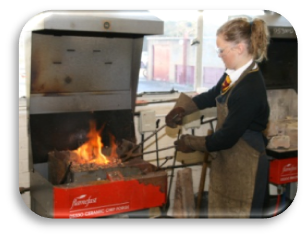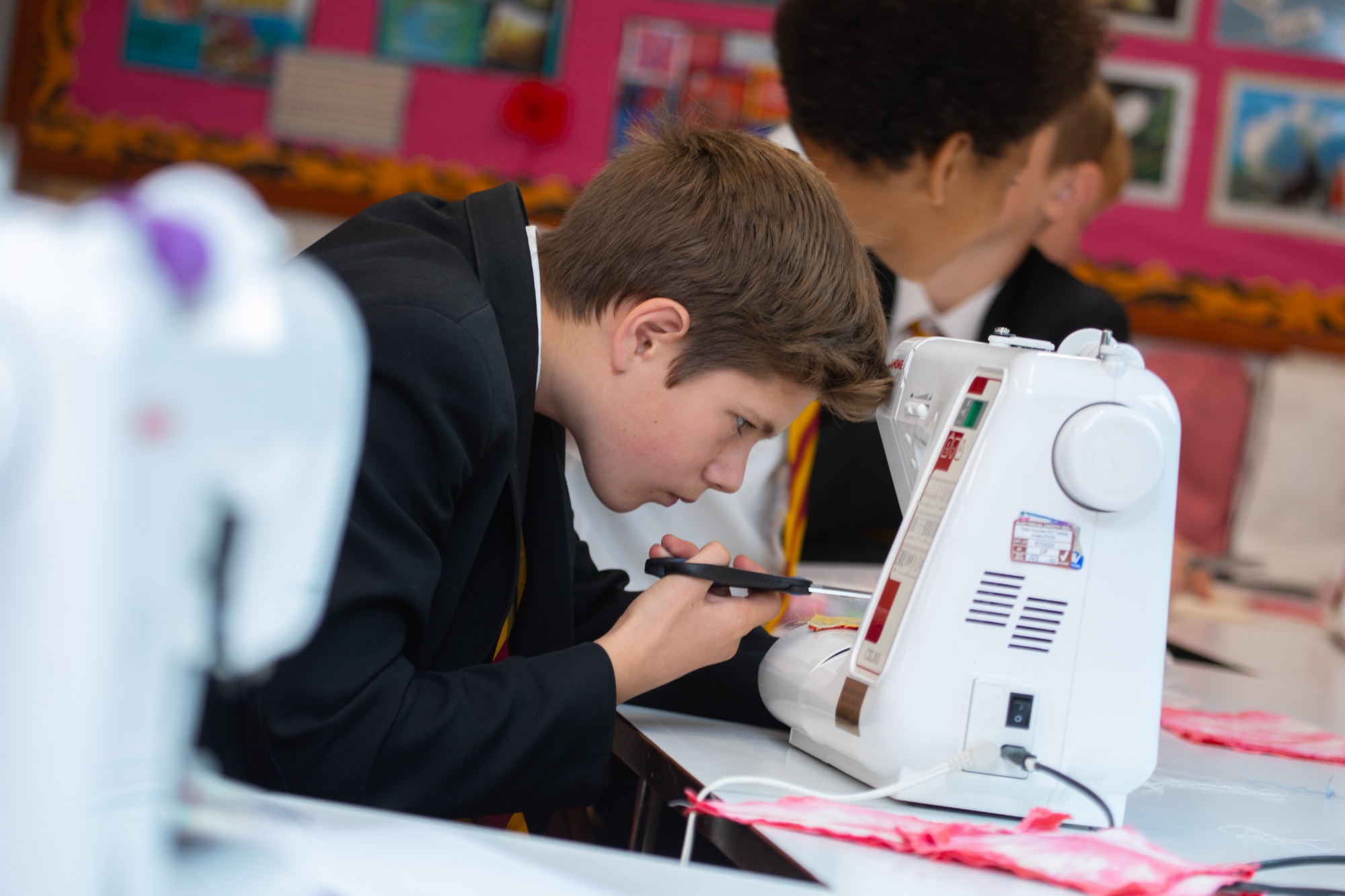Design and Technology - Key Stage 3
The key stage 3 curriculum in Design and Technology aims to build on previous knowledge, aptitude and natural enthusiasm to develop a student’s Design and Technology capability through a variety of activities. Focussed practical tasks give students the opportunity to learn and practise particular skills and knowledge.
Design and making assignments provide students with the opportunity to use their capability to develop products which meet the needs of a given design situation. Product analysis tasks enable students to investigate existing products and use their findings to improve their own repertoire of skills, knowledge and understanding.
The method of delivery is intensely practical and based on the belief that students learn most effectively by doing, producing practical solutions to design problems. Consequently, our schemes of work, particularly at key stage 3, are aimed towards the realisation of quality products that students are proud to take home.
At key stage 3, students work in ability-based groups of an average size of 21 students. As students progress from Year 7 to 8, they experience the full range of Design and Technology disciplines in modules of approximately 18 hours. Food Technology, Metalwork, Graphics, Woodwork and Textiles Technology form the heart of the curriculum at key stage 3 and provide the stepping stone to progress to key stage 4.

Food Technology - At key stage 3, students will have an introduction to healthy eating and routines when preparing food to keep it safe. Students will be introduced to basic skills used in many dishes, including fruit and vegetable preparation, dough making, shaping, use of the oven and hob, weighing and measuring, following and adapting recipes, cake making and sauce making. Students will work individually and in teams throughout the course and will make dishes such as vegetable curry, pizza and fruit/savoury muffins.
Graphics - The key stage 3 project in Graphics is an advertising project aimed at designing all the promotional information and the specific packaging for a product. Throughout the module students look at freehand drawing, colour selection, mind mapping their ideas, writing a design brief, analysing existing products, creating a specification list, brand identity when designing logos and the use of 2-Dimensional design software with which they will design the package for their product, and finally 3-Dimensional modelling when students print, laminate and construct their final packaging.
Metalwork - Metalwork in key stage 3 is about introducing students to the world of engineering and manufacture. In Year 7 students will make a coat-hook from aluminium, and in Year 8 a spinning top made from aluminium and steel. They start each project with a workshop on Health and Safety and how to behave in a mature and disciplined fashion in the workshop. The students learn how to read a basic engineering drawing and translate this into a functioning coat-hook or spinning top. This is achieved by the effective and efficient use of hand-tools and machinery. An accompanying booklet is filled out as the students learn new skills and processes to reinforce the learning.
Textiles - The following topics are covered in Textiles during key stage 3:
- Year 7 - properties of fabrics, natural and synthetic fibres, embroidery techniques, fabric food.
- Year 8 - working with stencils and fabric spray paints, fashion illustration techniques using computer software, research into upcycling and graffiti techniques.
Woodwork - In Year 7 students carry out a focused practical task during which they will use an array of marking, cutting and shaping tools along with machines to create a hand-crafted product in the shape of a push along car/pencil holder. Students will also complete a design booklet that backs up the practical learning that has taken place with a series of drawings, production plans and evaluations. In Year 8 students will either work on a more demanding, focused practical task or they will make a product which they have designed (e.g. a wall mounted clock). The emphasis is for students to build on the skills they have learnt in Year 7 whilst learning to think creatively and consider the needs of potential customers/users. Students will complete a design booklet where they gather research information and produce drawings and evaluations.

Curriculum Implementation
Click on the links below to view the curriculum implementation overviews for the different subject areas:
Curriculum Timelines
Click on the links below to view the curriculum timelines for the different subject areas:
Curriculum Learning Journey
Click on the links below to view the learning journeys for the different subject areas:
Knowledge Organisers
Click on the links below to view knowledge organisers for some of the different subject areas:
Click here to return to the Design and Technology Page.
